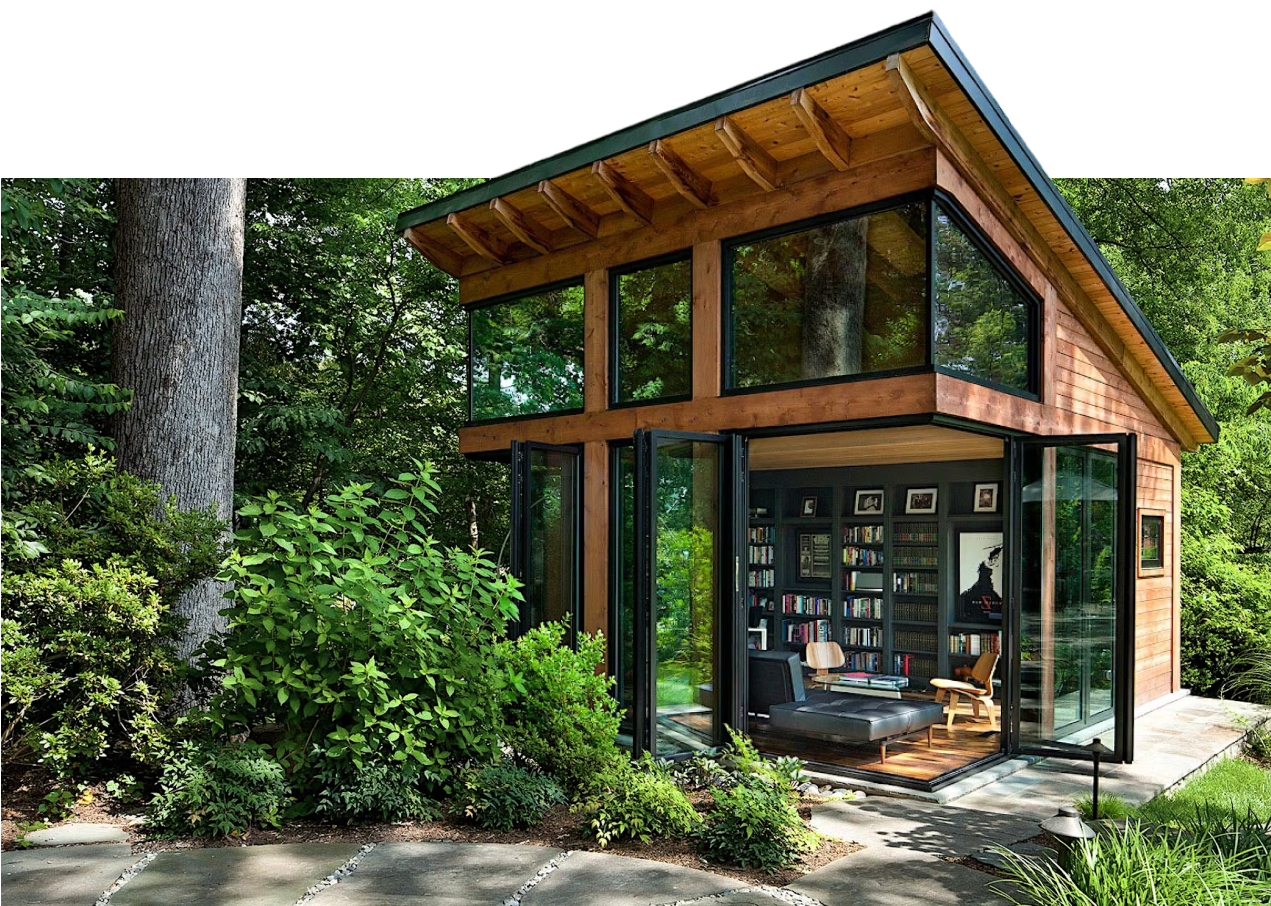The leading source for ADU related information
Everything You Need to Know About ADUs in California
Whether you’re looking to generate income, expand your living space, or add value to your property, we’re here to guide you every step of the way.

Save Money
Reduce costs with proven methods.

Build Faster
Streamline approvals and timelines.

Expert Support
Access guidance from seasoned pros.

Avoid Mistakes
Prevent costly errors
with ease.

A Deep Dive into California's Affordable Housing Initiatives
A Deep Dive into California's Affordable Housing Initiatives
Did you know that California is ranked first among the 50 states in terms of unaffordable housing? According to the California Budget & Policy Center, around one in five households spend more than half their income on housing expenses. The state is taking various initiatives to combat situations like these, but not everyone is as informed as they should be.
We've written a brief guide on what to keep in mind so you can better understand the issues at hand. Let's take a closer look at California's affordable housing initiatives.
Understanding Affordable Housing in California
Affordable housing remains a cornerstone of addressing economic disparities in California. It offers low-income families and individuals a chance to live in safe, decent homes without excessive financial strain.
The growing population and high demand for property have made housing an increasingly urgent issue across the state. Many communities rely on affordable housing programs to maintain diversity and support essential workers. Without these options, many would be forced to leave their communities, disrupting social and economic stability.
The History of Affordable Housing Policies
Efforts to address housing needs in California have evolved over decades. Early measures focused on providing government-funded housing for the most vulnerable populations in the state.
Over time, private sector involvement grew, introducing new funding mechanisms and partnerships. Key moments in history, like the post-World War II housing boom, brought both opportunities and challenges. Policies today build on these past efforts, aiming to strike a balance between development and affordability.
Key Challenges Facing Affordable Housing
Rising construction costs and limited land availability create significant hurdles for affordable housing projects. Many areas also face opposition from local residents, often referred to as NIMBYism, which slows development.
Economic downturns further strain resources, reducing funding for housing initiatives. Addressing these challenges requires innovation and collaboration among:
Policymakers
Developers
The public
Additionally, outdated zoning laws restrict the density and types of housing that can be built in certain areas.
Statewide Efforts to Address Housing Shortages
State housing initiatives aim to tackle the growing demand for affordable homes. Programs like the Low-Income Housing Tax Credit have incentivized developers to create more units. California's new laws encourage the development of accessory dwelling units (ADUs) to maximize existing space.
California's leadership has also invested in streamlining the approval process for new housing projects. These measures reflect a commitment to ensuring housing solutions California residents can rely on for long-term stability.
Inclusionary Housing Programs and Their Impact
Inclusionary housing programs require developers to allocate a portion of their projects to affordable units. These policies ensure that economic diversity is preserved in rapidly growing areas.
Many cities have seen success with these programs, although they often face pushback from developers. By integrating affordable units into larger developments, communities benefit from mixed-income neighborhoods. Such programs play a crucial role in making housing accessible to a broader range of residents.
The Role of Local Governments
Local governments play a pivotal role in implementing California housing policies. These will:
Oversee zoning changes
Approve new developments
Allocate funds for affordable housing projects
City councils and planning commissions often act as mediators between developers and residents. Success at the local level often depends on leaders who prioritize housing as a key issue. Strong collaboration between state and local agencies is vital for creating impactful housing solutions.
Funding Mechanisms for Housing Development
Funding for affordable housing often comes from a mix of:
Federal
State
Local sources
Bonds and grants help finance projects that might not otherwise be viable. Many developers also rely on public-private partnerships to share costs and risks.
Consistent funding streams are critical to ensure the sustainability of affordable housing programs. Without adequate resources, many planned developments remain stalled or incomplete.
Public-private Partnerships in Housing Solutions
Collaborations between government agencies and private companies have driven innovative housing solutions in California. These partnerships leverage the strengths of both sectors to create more efficient and cost-effective projects.
Private firms often bring expertise and resources, while public entities provide incentives and regulatory support. Successful projects demonstrate the value of aligning public goals with private investment. Expanding these collaborations could significantly boost housing development across the state.
Environmental Considerations in Housing Projects
Sustainable building practices are becoming a priority in affordable housing development. Many projects now incorporate renewable energy sources and energy-efficient designs. Environmental reviews ensure that developments do not harm local ecosystems.
Balancing affordability with sustainability requires careful planning and investment. Long-term benefits include lower utility costs for residents and reduced environmental impact. Reducing these costs is one of the most important attributes of these initiatives, so keep them in mind when moving forward.
Evaluating the Effectiveness of Rent Control Laws
Rent control remains a contentious issue in California's housing debate. Supporters argue that it protects tenants from sudden and steep rent increases. Critics claim that it discourages investment and reduces the overall housing supply.
Recent studies highlight mixed outcomes, showing both benefits and unintended consequences. Policymakers continue to weigh these factors as they evaluate long-term strategies for California real estate aid.
Future Projections for Affordable Housing in California
Experts anticipate that demand for affordable housing will continue to grow. Emerging technologies in construction (such as accessory dwelling units) may help reduce costs and improve efficiency.
Legislative changes could also pave the way for more streamlined housing approvals. The state's commitment to addressing this issue suggests that progress, though slow, will continue. Long-term solutions will require both innovation and sustained effort from all stakeholders.
How Residents Can Advocate for Housing Reform
Residents can make a difference by voicing support for affordable housing initiatives. Attending city council meetings and participating in public hearings allows for direct input. Joining local advocacy groups provides opportunities to amplify community concerns.
Educating others about the benefits of affordable housing can help reduce opposition. Collective efforts from residents often lead to meaningful changes in housing policies.
Cause of Unaffordable Housing in California
Understanding the causes of unaffordable housing in California is crucial for tackling this issue. There are numerous to keep in mind, and some are more prominent than others. Let's take a closer look at some of the most notable.
High Demand and Limited Supply
California's population growth has significantly outpaced the availability of new housing. Many people are drawn to the state's thriving economy, diverse culture, and desirable climate. As more individuals and families move in, competition for existing homes drives prices upward.
Developers often struggle to meet demand due to regulatory hurdles and limited space in urban areas. Without enough supply to match the influx of residents, housing costs continue to rise steeply.
Restrictive Zoning Laws
Zoning regulations in California often limit the types of housing that can be built in certain areas. Many communities prioritize single-family homes, which reduces opportunities for denser, more affordable developments.
In some cases, outdated policies prevent developers from constructing apartment buildings or accessory dwelling units. These restrictions create a barrier to addressing the housing shortage effectively. Efforts to reform zoning laws face resistance from local governments and residents concerned about preserving neighborhood character.
Rising Construction Costs
Building homes in California has become increasingly expensive due to a variety of factors. High labor costs and rising material prices both contribute to this issue. Developers frequently pass these costs onto buyers and renters, making housing less affordable for many people in the state.
Economic fluctuations can exacerbate the problem, as material shortages and inflation further strain budgets. Addressing construction costs requires innovative approaches to streamline processes and reduce expenses.
Speculation in the Housing Market
Investors and speculators often purchase properties in California with the intent of flipping them for profit. Practices like these increase prices, making homes less accessible to average buyers. In some cases, large corporations buy multiple properties, turning them into rental units and reducing the availability of affordable housing.
Speculation contributes to the perception of housing as a commodity rather than a necessity. Policies aimed at discouraging speculation could help stabilize the market and prioritize housing for residents.
Impact of Short-Term Rentals on Housing Availability
The rise of short-term rental platforms has significantly affected housing markets in many California cities. Property owners often convert long-term rental units into vacation rentals to maximize profits. As a result, fewer homes are available for local residents, driving up competition and prices.
Communities with high tourist demand face even greater challenges, as short-term rentals often dominate entire neighborhoods. Local governments are working to regulate this trend by implementing restrictions and requiring permits for rental properties.
Understand California's Affordable Housing Initiatives
California's housing future depends on actions taken today to ensure all residents have access to secure, affordable homes. The tips in this guide will help you understand California's affordable housing initiatives, providing insight into the path forward.
ADU Help Center is California's premier resource for accessory dwelling units, offering expert guidance to homeowners. Our members save an average of $30,000 per project by learning to become professional micro-developers. You can sign up today to stay informed with the latest ADU laws, building codes, and design trends to enhance your property value and lifestyle.
Take the guesswork out of ADU development and start building with confidence.
Save Thousands: Learn proven strategies to cut costs and avoid expensive mistakes—our members save an average of $30,000 per project.
Expert Guidance: Get step-by-step coaching from seasoned professionals with years of experience in ADU development.
Faster Approvals: Navigate California’s complex ADU laws and permitting process with ease, saving time and frustration.
Tailored Resources: Access a network of trusted contractors, suppliers, and tools to streamline your project.
Community Support: Join a like-minded group of homeowners and developers who share insights, tips, and encouragement.

Maximize Your Property’s Potential
Learning about ADUs empowers you to turn unused space into a steady source of income. Whether it’s a rental unit, a guest house, or a workspace, ADUs can significantly boost your property’s value while providing financial freedom.
Build Wealth Through
Smart Development
Learn how ADUs can increase your property’s value and create long-term financial security for you and your family.
Create Housing for
Loved Ones
Design a comfortable, private space for family members or guests while keeping them close to home.
Contribute to
Affordable Housing
Be part of the solution by creating accessible, affordable housing options in your community while benefiting financially.
Tap Into Your
Property’s Value
Transform underutilized space into a high-performing asset that adds purpose and value to your property.
Don't Just Take Our Word for It
Hear from our community members about how our coaching has equipped them with the knowledge and support needed to successfully navigate their property development projects and achieve their goals.

Why You Can Trust Us

Proven Success
Our team has helped countless homeowners navigate the ADU process, saving time, money, and stress.

Industry Leaders
With deep knowledge of California’s ADU laws and regulations, we stay ahead of the curve to provide you with the most accurate and up-to-date information.

Hands-On Experience
We’ve been involved in hundreds of ADU projects, from design to completion, giving us the expertise to guide you every step of the way.

Tailored Solutions
No two properties are the same. We provide personalized advice and strategies to meet your unique needs and goals.


